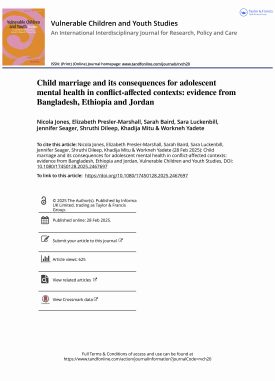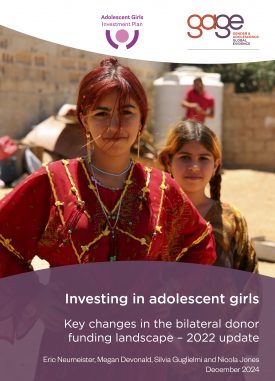This evidence digest synthesises secondary data to identify what is known about how social enterprises can improve outcomes for adolescent girls in low-income countries.
Social enterprises offer the potential to support the development of girls’ and women’s broader capabilities in a number of ways, including by providing opportunities in training and employment, and delivering targeted, innovative and efficient health and education services.
The digest concludes that whether social enterprises are meeting their potential to create cost-effective change for girls and women is under-researched, and what evidence does exist shows a mixed picture, calling for more empirical research.
The paper recommends that new research addresses these three questions:
- How can social enterprises ensure financial sustainability whilst meeting their social objectives and benefiting the poorest and most marginalised groups, which includes adolescent girls as end users, social entrepreneurs and employees?
- What works, where and for whom; how does the social enterprise model, and the means by which it operates, affect its workers, the end user and its own enterprise outcomes?
- How can social enterprises be more clearly defined and coordinated so that they are better integrated into broader development programming, whilst at the same time granting entrepreneurs the autonomy to respond to local opportunities and needs?
Suggested citation
Holmes, R. and Sandhar, J. K. (2017) Do adolescent girls benefit from social enterprises? London: Gender and Adolescence: Global Evidence (https://www.gage.odi.org/publication/do-adolescent-girls-benefit-social-enterprises/)


